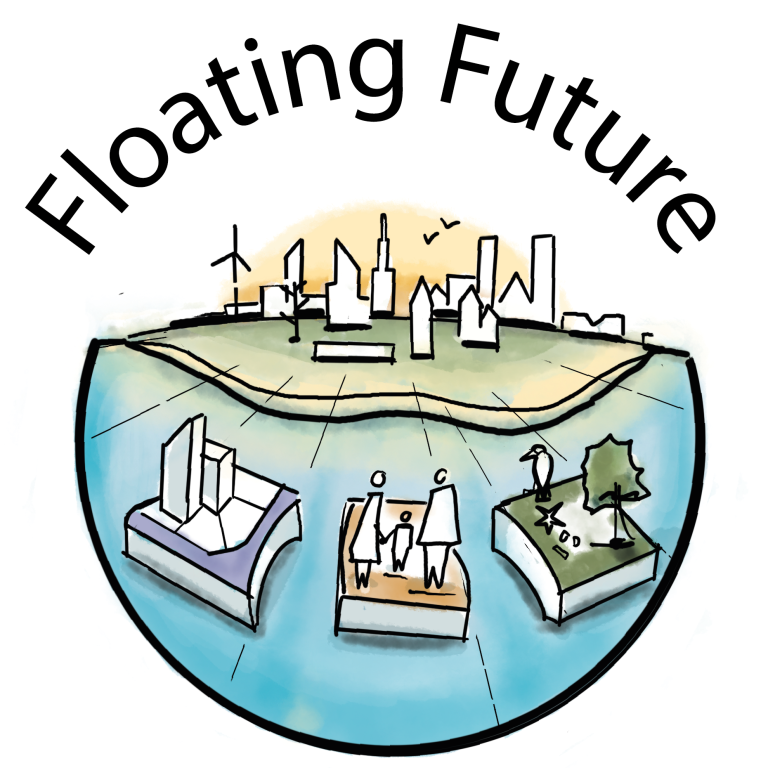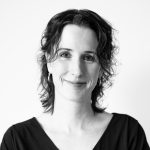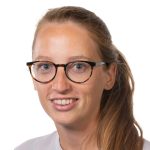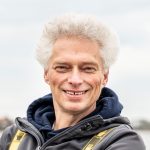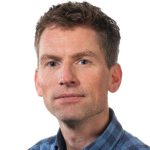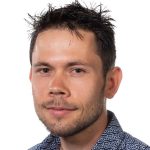Floating Future Team
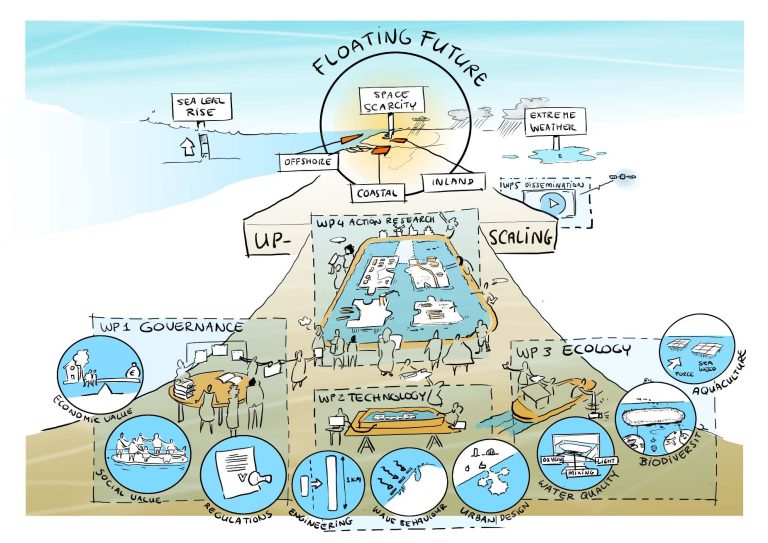
Work Package 1: Governance
“To create sustainable, inclusive, and a multifunctional living space on water, insight is required into the societal acceptance of large-scale floating concepts and the governance challenges related to upscaling. The first project that is part of WP 1 is therefore studying the social value of floating communities, and how citizens can be enabled, motivated and mobilised to participate in these developments. Arts-based, co-creation methods will be used to develop and visualise shared narratives on floating futures. The second project zooms in on the economic value of floating concepts, focusing on the development of sustainable business models for floating ports. To this end, soft systems methodology and Multi-Actor Multi-Criteria Analysis will be used. The third project focuses on the legal embodiment of large-scale floating structures and studies the rules and regulations that are required to incorporate floating objects into the existing legal system. Together, the three projects will develop novel floating urban and port concepts, and propose social, economic and legal conditions and principles for the future governance arrangements of large-scale floating structures.”
NAME
Topic
Affiliation
Sonja Rombach
TBD
TBD
TBD
PhD: The social value of floating communities
PhD: Sustainable business models for floating ports
PhD: Legal embodiment of large-scale floating structures
Postdoc: Synthesis: enabling and upscaling floating futures
University of Groningen
Erasmus University Rotterdam
Open University
Groningen University
Work Package 2: Technology
“The forces and motions of extremely large structures in waves will be studied. The challenge is to find designs that lead to acceptable forces and motions in open water environments. This will be studied for inland as well as offshore environments, scaling up the engineering complexity from smaller scale developments to large floaters at sea. On the other hand, there is also the effect that these very large structures have on the local wave climate and coastal processes. It will be interesting to see if floating structures can play a role in coastal flood safety. This also links to the ecology work package where we will investigate the effects of wave and light shielding on biodiversity and opportunities for aquaculture. Finally, for city developments it is likely that floating parts will be added to existing cities. We will research the architecture and urban design methods needed to enable the floating part to become an integrated part of the city through case studies in Rotterdam and Amsterdam.”
NAME
Topic
Affiliation
TBD
TBD
TBD
TBD
PhD: Acceptable forces and motions of a floater system
PhD: Floating Eco-Reefs for wave attenuation
PhD: Floating Island effects on coastal flood safety
PhD: Architecture and urban design
Delft University of Technology
Delft University of Technology
Delft University of Technology
Delft University of Technology
Work Package 3: Ecology
“Large floating structures will not only cause shading, but will also affect water mixing by currents and waves, resuspension of fine sediment and many other factors. Additionally, such structures will become potential habitat or organisms that settle on hard substrate, which eat phytoplankton and use nutrients, thereby affecting a more extensive area around the structure. The ecological effects are hence extremely hard to predict, especially because the magnitude of these effects depend on the scale of the floating structure relative to the size and other specific characteristics of the receiving waterbody. Beyond potential negative impacts on the environment, there may also be opportunities to create
positive impacts, by making biodiversity-enhancing designs of the edge of the islands (both above and below water) and utilising specific areas for economic activities such as aquaculture, that may also have favourable effects on biodiversity. We will develop design rules to maximise floating space in an environmentally friendly way. The design rules will include how to scale floating structures relative to the receiving system (PhD 3.1), how to create biodiversity-supporting island edges (PhD 3.2), and how to spatially integrate the cultivation of seaweeds (PhD 3.3).”
NAME
Topic
Affiliation
TBD
TBD
TBD
PhD: Defining the optimal scale of floating islands to maintain good water quality
PhD: Optimizing below- and above-water edge designs of large-scale floating systems across water types
PhD: Integrating opportunities for seaweed cultivation
Utrecht University
NIOZ
NIOZ
Work Package 4: Action Research
“Participatory Action Research (PAR) (WP 4) is the unique central ‘integration engine’ of Floating Future where the scientific disciplines Governance (WP 1), Technology (WP 2) and Ecology (WP 3) and the societal stakeholders come together to co-create innovative knowledge with the researchers. PAR is a method not only to advance scientific knowledge with societal stakeholders, but also to achieve practical objectives such as improving practice. In Floating Future this is done by participating in concrete case studies around the three study focus areas of the research: Inland,
Coastal port city and Offshore. One of the Action Research methods that is applied in Floating Future is Climate Café, a unique and proven method for collaborative learning and co-creation at exciting case study field locations. Other WP 4 co-creation instruments include governance thinktank meetings, interactive design workshops, VR simulations and investors’ roundtables.”
Researchers
• Rutger de Graaf – Blue Revolution Foundation
• Christiaan Weiler – Blue Revolution Foundation
• Floris Boogaard – Hanze Hogeschool
• Jeroen Rijke – Hogeschool Arnhem Nijmegen
